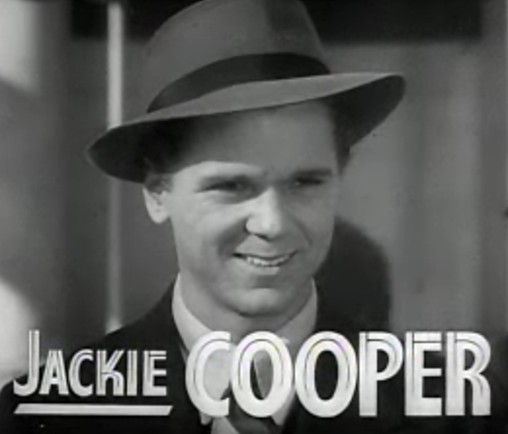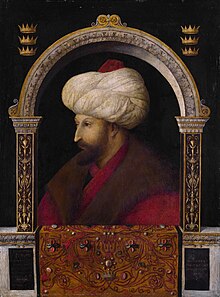May 3 is the 123rd day of the year (124th in leap years) in the Gregorian calendar. There are 242 days remaining until the end of the year.
Holidays
- Christian Feast Day:
- Constitution Memorial Day (Japan)
- Constitution Day (Poland)
- Roodmas, or Feast of the Finding of the Holy Cross (Gallican Rite of the Catholic Church)
- World Press Freedom Day (International)
History
On this day in 1957, owner Walter O’Malley announced the Dodgers would move from Brooklyn to Los Angeles. He also persuaded the New York Giants to relocate, with the Giants settling in San Francisco.
In 752, Mayan king Bird Jaguar IV of Yaxchilan in modern-day Chiapas, Mexico assumes the throne.
In 1481, The largest of three earthquakes strikes the island of Rhodes and causes an estimated 30,000 casualties.
In 1481, Mehmed the Conqueror, Ottoman sultan (b. 1432) dies. He was also known as Mehmed the Conqueror or Fatih Sultan Mehmed or Muhammed bin Murad (30 March 1432 – 3 May 1481), was Sultan of the Ottoman Empire twice, first for a short time from 1444 to September 1446, and later from February 1451 to 1481. At the age of 21, he conquered Constantinople and brought an end to the Byzantine Empire, transforming the Ottoman state into an empire. Mehmed continued his conquests in Asia, with the Anatolian reunification, and in Europe, as far as Bosnia and Croatia. Mehmed II is regarded as a national hero in Turkey, and among other things, Istanbul’s Fatih Sultan Mehmet Bridge, and Fatih University and Fatih College are all named after him.
In 1491, Kongo monarch Nkuwu Nzinga is baptised by Portuguese missionaries, adopting the baptismal name of João I.
In 1791, The Constitution of May 3 (the first modern constitution in Europe) is proclaimed by the Sejm of Polish–Lithuanian Commonwealth.
In 1802, Washington, D.C. is incorporated as a city.
In 1808, Finnish War: Sweden loses the fortress of Sveaborg to Russia.
In 1808 – Peninsular War: The Madrid rebels who rose up on May 2 are executed near Príncipe Pío hill.

In 1815, Neapolitan War: Joachim Murat, King of Naples is defeated by the Austrians at the Battle of Tolentino, the decisive engagement of the war.
In 1830, The Canterbury and Whitstable Railway is opened. It’s the first steam hauled passenger railway to issue season tickets and include a tunnel.
In 1837, The University of Athens is founded in Athens, Greece.
In 1849, The May Uprising in Dresden begins – the last of the German revolutions of 1848.
In 1855, American adventurer William Walker departs from San Francisco with about 60 men to conquer Nicaragua.
In 1860, Charles XV of Sweden–Norway is crowned king of Sweden.
In 1867, The Hudson’s Bay Company gives up all claims to Vancouver Island.
In 1877, Labatt Park, the oldest continually operating baseball grounds in the world has its first game.
In 1901, The Great Fire of 1901 begins in Jacksonville, Florida.
In 1913, Raja Harishchandra the first full-length Indian feature film is released, marking the beginning of the Indian film industry.
In 1915, The poem In Flanders Fields is written by Lieutenant Colonel John McCrae.
In 1920, A Bolshevik coup fails in the Democratic Republic of Georgia.
In 1921, West Virginia becomes the first state to legislate a broad sales tax, but does not implement it until a number of years later due to enforcement issues.
In 1928, Japanese atrocities in Jinan, China.
In 1937, Gone with the Wind, a novel by Margaret Mitchell, wins the Pulitzer Prize for Fiction.
In 1939, The All India Forward Bloc is formed by Netaji Subhas Chandra Bose.
In 1942, World War II: Japanese naval troops invade Tulagi Island in the Solomon Islands during the first part of Operation Mo that results in the Battle of the Coral Sea between Japanese forces and forces from the United States and Australia.
In 1943, Harry Miller, American engineer (b. 1875) dies. He was commonly called Harry, was an American race car designer and builder who was most active in the 1920s and 1930s. Griffith Borgeson called him “the greatest creative figure in the history of the American racing car”. Cars built by Miller won the Indianapolis 500 nine times, and other cars using his engines won three more. Millers accounted for 83% of the Indy 500 fields between 1923 and 1928.
In 1945, World War II: Sinking of the prison ships Cap Arcona, Thielbek and Deutschland by the Royal Air Force in Lübeck Bay.
In 1947, New post-war Japanese constitution goes into effect.
In 1948, The U.S. Supreme Court rules in Shelley v. Kraemer that covenants prohibiting the sale of real estate to blacks and other minorities are legally unenforceable.
In 1951, London’s Royal Festival Hall opens with the Festival of Britain.
In 1951, The United States Senate Armed Services and Foreign Relations Committees begin their closed door hearings into the dismissal of General Douglas MacArthur by U.S. President Harry Truman.
In 1952, Lieutenant Colonels Joseph O. Fletcher and William P. Benedict of the United States land a plane at the North Pole.
In 1952, The Kentucky Derby is televised nationally for the first time, on the CBS network.
In 1957, Walter O’Malley, the owner of the Brooklyn Dodgers, agrees to move the team from Brooklyn, New York, to Los Angeles, California.
In 1960, The Off-Broadway musical comedy, The Fantasticks, opens in New York City’s Greenwich Village, eventually becoming the longest-running musical of all time.
In 1960, The Anne Frank House museum opens in Amsterdam, Netherlands.
In 1963, The police force in Birmingham, Alabama switches tactics and responds with violent force to stop the “Birmingham campaign” protesters. Images of the violent suppression are transmitted worldwide, bringing new-found attention to the African-American Civil Rights Movement.
In 1973, The 108-story Sears Tower in Chicago is topped out at 1,451 feet as the world’s tallest building.
In 1978, The first unsolicited bulk commercial e-mail (which would later become known as “spam“) is sent by a Digital Equipment Corporation marketing representative to every ARPANET address on the west coast of the United States.
In 1979, After the general election, Margaret Thatcher forms her first government as Prime Minister of the United Kingdom.
In 1986, Twenty-one people are killed and forty-one are injured after a bomb explodes in an airliner (Flight UL512) at Colombo airport in Sri Lanka.
In 1987, A crash by Bobby Allison at the Talladega Superspeedway, Alabama fencing at the start-finish line would lead NASCAR to develop the restrictor plate for the following season both at Daytona International Speedway and Talladega.
In 1996, Jack Weston, American actor (b. 1924) dies of lymphoma at aged 71. He was an American film, stage, and television actor. Weston usually played comic roles in films such as Cactus Flower and Please Don’t Eat the Daisies, but also occasionally essayed heavier parts, such as the scheming crook and stalker who, along with Alan Arkin and Richard Crenna, attempts to terrorize and rob a blind Audrey Hepburn in the 1967 film Wait Until Dark. Weston had countless character roles in major films such as The Cincinnati Kid and The Thomas Crown Affair. On television he made numerous appearances such as murderer Fred Calvert in the 1958 Perry Mason episode, “The Case of the Daring Decoy.” In 1981, Weston appeared on Broadway in Woody Allen‘s comedy The Floating Light Bulb, for which he was nominated for a Tony Award as Best Actor. Other stage appearances included Bells are Ringing (with Judy Holliday), The Ritz, One Night Stand, and Neil Simon‘s California Suite. Weston co-starred in Alan Alda‘s 1981 film The Four Seasons, then reprised his role to star in a television series spinoff on CBS.
In 1999, The southwestern portion of Oklahoma City, Oklahoma is devastated by an F5 tornado, killing forty-five people, injuring 665, and causing $1 billion in damage. The tornado is one of 66 from the 1999 Oklahoma tornado outbreak. This tornado also produces the highest wind speed ever recorded, measured at 301 +/- 20 mph (484 +/- 32 km/h).
In 2000, The sport of geocaching begins, with the first cache placed and the coordinates from a GPS posted on Usenet.
In 2001, The United States loses its seat on the U.N. Human Rights Commission for the first time since the commission was formed in 1947.
In 2002, A military MiG-21 aircraft crashes into the Bank of Rajasthan in India, killing eight.
In 2003, New Hampshire‘s famous Old Man of the Mountain collapses.
In 2003, Suzy Parker, American model and actress (b. 1932) dies via ending her dialysis treatments at age 70 and surrounded by family at her orchard in Montecito. She was an American model and actress active from 1947 into the early 1960s. Her modeling career reached its zenith during the 1950s, when she appeared on the cover of dozens of magazines and in advertisements and movie and television roles. She appeared in several Revlon advertisements as well as in advertisements for many other cosmetic companies, including Solo Products (the largest hair care product company in the country at the time), as no model had an exclusive makeup contract until Lauren Hutton (for Revlon and Revlon’s Ultima) and Karen Graham (for Estée Lauder) signed them in the early 1970s. She was the first model to earn $100,000 per year and the only fashion model to have a Beatles song named after her, albeit an unreleased one.

In 2011, Jackie Cooper, American actor, director, and producer (b. 1922) dies. He was an American actor, television director, producer and executive. He was a child actor who managed to make the transition to an adult career. Cooper was the first child actor to receive an Academy Award nomination. At age 9, he was also the youngest performer to have been nominated for an Academy Award for Best Actor in a Leading Role—an honor that he received for the film Skippy (1931). For nearly 50 years, Cooper remained the youngest Oscar nominee in any category, until he was surpassed by Justin Henry‘s nomination, at age 8, in the Supporting Actor category for Kramer vs. Kramer (1979).
In 2015, Two gunmen launch an attempted attack on an anti-Islam event in Garland, Texas, which was held in response to the Charlie Hebdo shooting.




